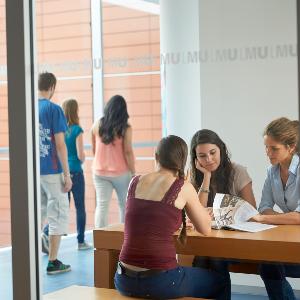The addition of another special education subject is possible, but not necessary. In this case, the study of hearing impairment education and the minor subject of primary school education is supplemented with another subject. These are referred to as extension subjects or special education qualifications. An extension is particularly recommended for school-based training if working in another federal state is an option. An extension also contributes to in-depth knowledge in other subject areas. The extension exam can be taken into account when applying for a position in the civil service. Information on this can be found on the Bavarian Ministry of Education and Cultural Affairs website. In some cases, a bonus is granted for the extension. This is granted at the time of hiring, adjusted annually, and therefore cannot be planned.
Possible times for expansion
If you decide to expand your studies, you do not have to start right at the beginning of your degree program. It is advisable to use the first one to two semesters to concentrate on your main studies. This will allow you to better assess the effort involved and your own capacities, and then decide whether an expansion is feasible. In principle, an extension subject can be taken up in any winter semester.
Application
The application process for an extension subject is the same as for a restricted-admission degree program. Applications must be submitted to the Student Office in due time and form.
Possible additional subjects
- Advising teacher
- Special education qualification – possible at LMU:
1. Pedagogy for behavioral disorders (focus on emotional and social development)
2. Special education for the mentally disabled (focus on mental development)
3. Special education for learning disabilities (focus on learning)
4. Speech therapy (focus on language)
- Didactics of a subject group in middle school
- Subjects: Biology, chemistry, German, English, ethics, geography, history, computer science, art, mathematics, music, physics, Catholic or Protestant religious education, social studies, English, art, music, and sports (special feature: aptitude test)
- Didactics of German as a second language
Subsequent extension
In addition to extending your studies during your degree program, it is also possible to extend them afterwards. This can be done after passing both state examinations. Possible options include media education, a foreign language qualification, or school psychology.
However, with this form of extension, it is also possible to study at the same time as the main course and take the examinations later, i.e., after obtaining the teaching qualification.
Procedure
If special education qualifications are required, there are no compulsory courses. This means that lectures and seminars do not have to be attended. However, it is advisable to consult with the relevant department to find out about the most important courses and to attend them if possible. The reason for this is that additional examinations are held during the first and second state examinations, in which the content is required.
An exception to this is the extension with a special education specialization. In this case, it should be noted that compulsory internships and the corresponding accompanying courses must be completed.
Overview of the elective subjects and their respective requirements

